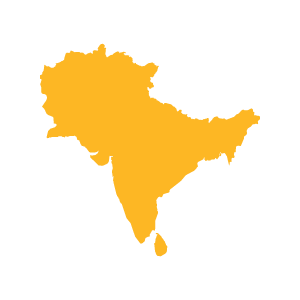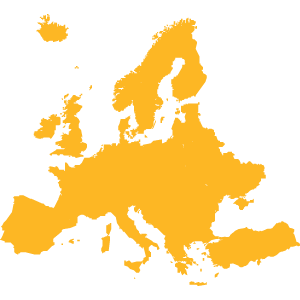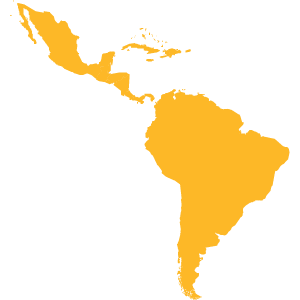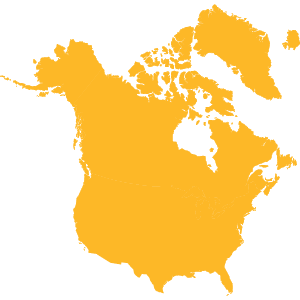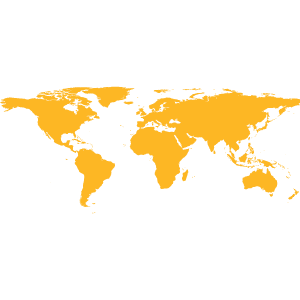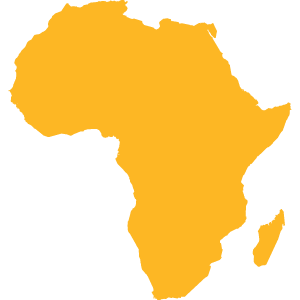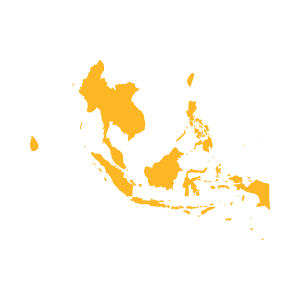Each TAI country chapter is independent and consists of individual experts and civil society organizations. TAI country chapters promote environmental democracy at the national level and undertake evidence-based research, advocacy and engagement. Members come together every two years at a Global Gathering, where they share experiences, strategize collaboratively and identify network priorities.
SECRETARIAT
Secretariat
The World Resources Institute (WRI) serves as the global secretariat for the TAI network. An elected TAI Core Team works with WRI to guide the network and coordinate activities.
South Asia
Europe
North America
Africa
South East Asia
The Access Initiative (TAI) network encompasses more than 250 civil society organizations in 60 countries worldwide, from Argentina to Zimbabwe working to create a global movement promoting environmental democracy.
TAI is always looking to expand our membership to include like-minded organizations and individuals who believe that transparency, participation and accountability are fundamental to saving our planet for future generations. Our new membership rules make it much easier for people to join the initiative. By being part of this network, you can have access to:
- International Advocacy: Gain opportunities to participate in exciting global projects and campaigns as part of a network
- Learning: Hear more about the work of other activists within the network
- Assessment Tools: Develop new tools and use existing TAI-developed resources like the Environmental Democracy Index and Rapid Institutional Analysis for Adaptation (ARIA) to strengthen your work
- Capacity: Expand your abilities and learn new methods, skills, and strategies through the network
- TAI Website Postings: Profile your work through blogs and other platforms on the TAI website
We believe reaching out to gain new members is important for:
- Expansion: Continue renewing our network with fresh views and ideas
- Impact: Scale our results at the national and international level
- Retention: Ensure we do not lose champions when they change jobs
- Improvement: Build a more effective, sustainable and action-oriented network
How to Gain TAI Membership
Prospective members must be nominated by an existing TAI member or by the TAI Secretariat. To express interest in joining the network, you can also fill out a quick form using this link. The information provided in the form will not be made public; it will be used solely by the TAI Secretariat to keep track of interested individuals.
Let us know if you are interested in joining TAI!
SECRETARIAT
SECRETARIAT
Each TAI country chapter is independent and consists of individual experts and civil society organizations. TAI country chapters promote environmental democracy at the national level and undertake evidence-based research, advocacy and engagement. Members come together every two years at a Global Gathering, where they share experiences, strategize collaboratively and identify network priorities.
TAI Core Team
The TAI Core Team or Board is made up of seven civil society organizations.
Europe
EMLA (Hungary) is the Core team lead for Europe and has served to support the development of tools to assess the implementation of the Aarhus Convention in Europe.
South Asia
Legal Initiative for Forest and Environment (India) – Ritwick Dutta is the Core team Lead for Asia, a prestigious environmental lawyer, he has serve to support developments on access rights in the region on transboundary waters, advocacy for public participation and access to justice through-out the region.
South East Asia
Thailand Environment Institute (Thailand)- Dr. Amphai Harakunarak is the new lead for TEI in conducting assessment of access rights in the region and the development of advocacy for the empowerment of civil society to use access rights.
Africa
CODELT (Democratic Republic of Congo) works on an array of forest and land governance issues in the DRC, focusing on policy advocacy and capacity building with civil societ and government
Latin America and the Caribbean
Asociación Ambiente y Sociedad (Colombia, represented by Natalia Gomez) works on access rights empowerment and use by Youth as well as public interest litigation, focuses include forests, climate and mining.
Cultura Ecologica (Mexico) – Tomas Severino and Olimpia Castillo Blanco with a strong focus on use of access to information frameworks, urban governance, natural resource and biodiversity protection as well as gender and their relationship to access rights.
Core Team members represent the TAI members from their region. The Core Team has three main areas of responsibility: contributing to TAI policy-making; providing support to TAI activities at the regional and national levels; and helping the TAI network to function as a whole. In practice, the roles played by Core Team members vary across regions. The World Resources Institute’s (WRI) role established the Access Initiative in 1999 and acts as its Secretariat. The Secretariat provides crucial capacity for many areas of activity in TAI, including fundraising, network strategy, global outreach, and the review of TAI assessments and Environmental Democracy Index indicators.
Secretariat
Carole Excell, Practice Director
Carole Excell is the Director of the Environmental Democracy Practice, a practice in WRI’s Governance Center. She is also the Project Director of the Access Initiative. She focuses her work on access to information, public participation and access to justice issues around the world.
Jesse Worker, Senior Associate, TAI Director
The Access Initiative Jesse Worker is an Associate at the World Resources Institute. His work currently includes helping to improve institutions governing climate change adaptation efforts. Jesse also manages the Environmental Democracy Index, which assesses how well countries around the world protect the rights to information, participation and justice for environmental matters.
Elizabeth Moses, Associate
The Access Initiative Elizabeth is a Research Analyst at WRI, where she conducts research and analysis on a variety of policy matters related to access to information, public participation and access to justice. Her work currently includes empowering communities in Indonesia and Mongolia to improve their environmental health through the use of their rights to access information.
